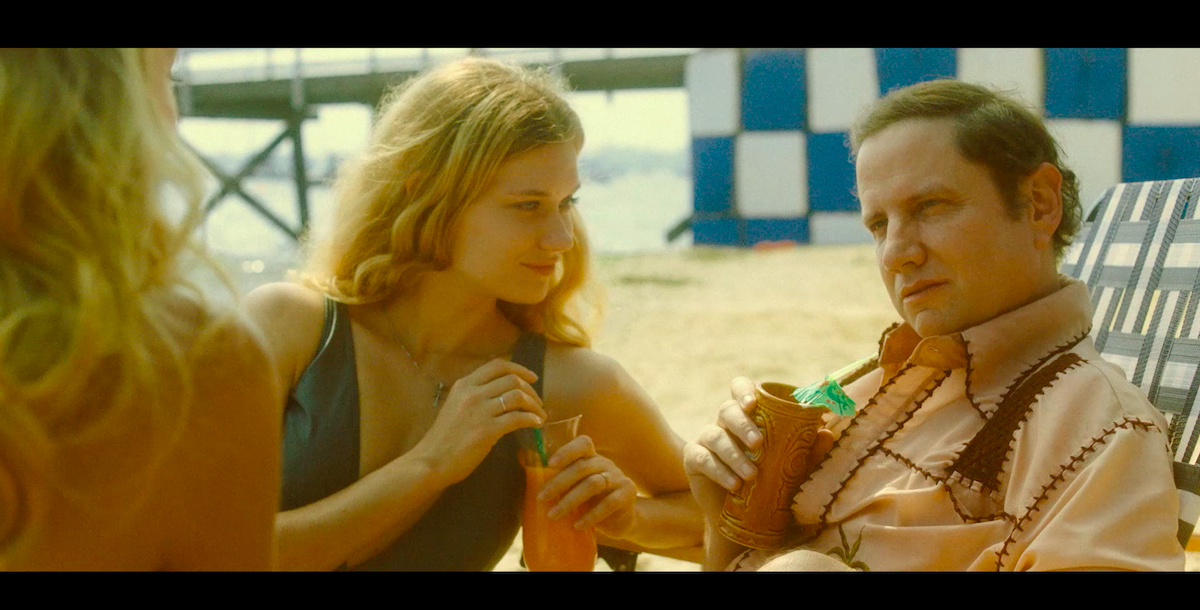The most monumental Supreme Court decision in U.S. history is cast in a very different light through the lenses of Nick Loeb and Cathy Allyn, co-directors of the new film, “Roe V. Wade.”
As they tell it, a massive conspiracy is what led to Roe winning her case in the end, and only a few people on the sidelines had the guts to speak out on behalf of the unborn. “Roe V. Wade” tells the story of 1960s abortion Dr. Bernard Nathanson, who has a change of heart after seeing his first sonogram and decides to fight against the practice he once performed daily.
Upper Darby’s Jamie Kennedy plays Larry Lader in the film. Lader, sometimes described as the “Father of abortion rights,” founded what is now NARAL Pro-Choice America and is credited with being one of the first to enable women’s access to abortion on-demand. Kennedy said playing Lader was weird – and cool – at the same time. But Hollywood critics have lambasted him for contributing to a movie project that the filmmakers say sheds a blinding light on such a sensitive subject.
PW editor Jenny DeHuff recently talked to Kennedy over Zoom to get his reaction to all of it. Here’s what he said:
Q: The subject of abortion is a very sensitive and polarizing subject for many people. Roe v. Wade is a court case that is still being debated to this day and many are still trying to overturn it.
Hearing the story of how abortion became legal through this lens – from a pro-life perspective, I know there has been a lot of criticism of it being misleading it its presentation. How has the reaction been for you?
A: This has been one of the more talking points of my career, so I welcome it – I welcome all the convo. I think that’s what art does, whether you call it art or not. It’s a movie about a very painful topic and an adult topic and it’s not escapism. We live in 2021. There’s a lot of problems in this world. There’s a lot of good things in this world. Everyone’s at each other’s throats, if you will. I’m getting kind of skewered for being in something that’s about an adult topic. Should I just do another piece of escapism? And then people complain about problems in the world. Well, this is a way to address the problems in the world – by talking about them. It’s a little frustrating, but that’s the way it is and people gotta grow up.
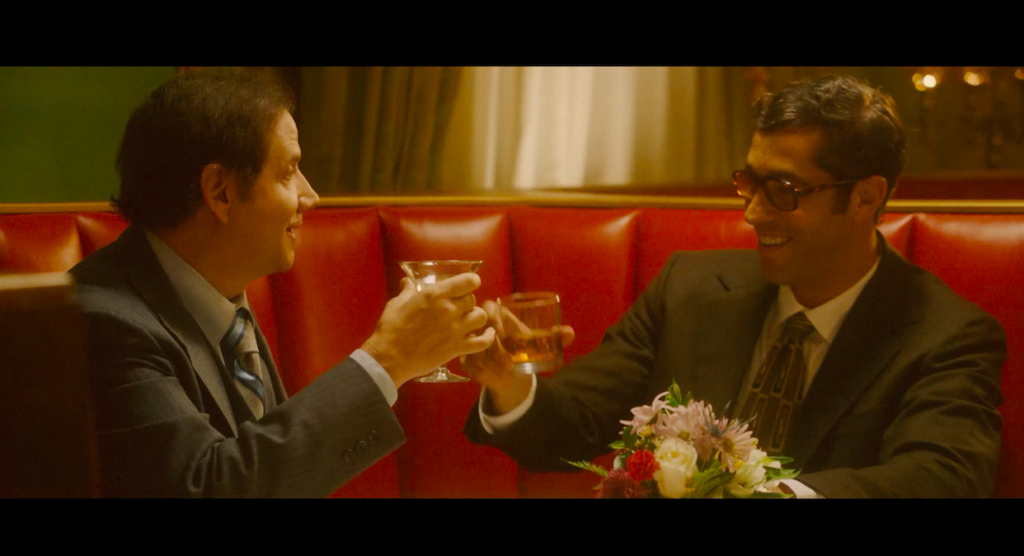
Q: You play Larry Lader, the so-called “Father of abortion.” He is both praised and vilified. Why did you accept the role of Larry Lader and what are your thoughts on him, having learned what you now know about who he was as a major champion and proponent of abortion?
A: I accepted the role because it’s a role I don’t normally get. I don’t normally get a role that’s super adult and nuanced and layered. It was in the topic of a film that obviously is going to be very polarizing. I thought it would be a good way for me to stretch my chops – even if some people don’t like the movie, some people will love the movie. That’s what you do. There’s a lot of great actors in the movie. Hollywood is very left-leaning, and I felt that Larry Lader would be someone that would be a hero to Hollywood. So, they should look at him as one of the heroes in the movie.
I think that women should have the right to do what they want with their bodies, and at some point, we need to decide when they’re sharing a body with another body. That’s all. And that’s why I wanted to do this movie.
He was one of the founders of Planned Parenthood, studied under Margaret Sanger, worked with Betty Friedan and other very strong feminists – he was the founder of NARAL, and basically a guy who championed a lot of women’s rights. In the movie, there’s some pointing to him where he may have liked some of the financial monetary gains that comes with potentially the abortion movement. You talk to some people, they say they didn’t make any money. You talk to other people, they say they did make a lot of money.
Look, I think abortion should be legal. My opinion should not be here. I’m just an actor, but it’s a very multi-layered subject. But I think Larry Lader should be looked upon as a person who was progressive for women and I think that’s a good thing.
Q: He came along and made abortion on-demand – possible – for any woman who needed it. In a way he was a savior for many women. Then you take a look at the statistic in the film that every 30 seconds a baby is aborted. Comparing these two things, do you feel like Larry was a hero or a villain? And moreover, has playing this role changed your views on abortion?
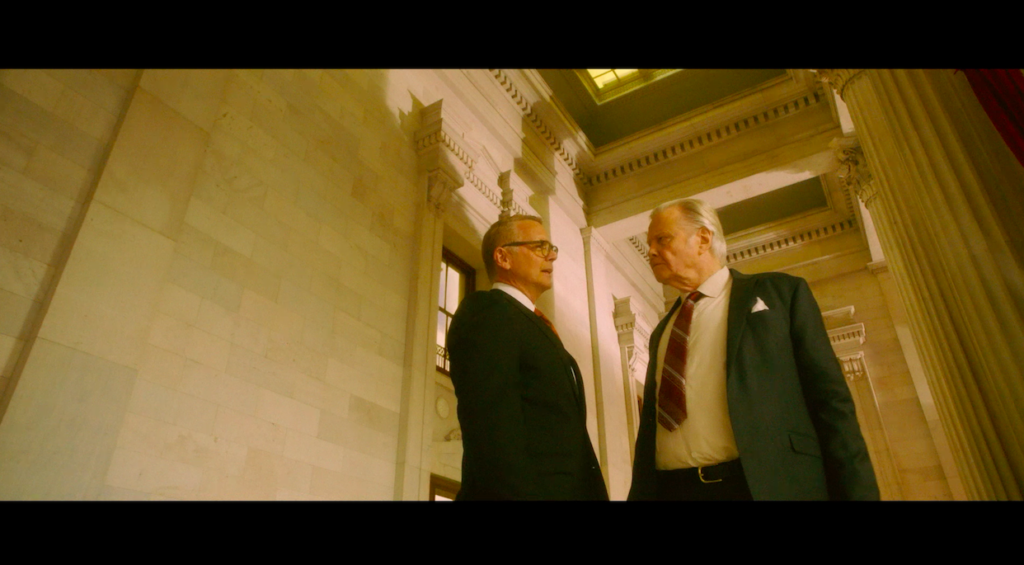
A: It’s a many-feathered bird and I don’t believe this will ever be solved…If you’re a woman and you have an unwanted or unplanned pregnancy, of course he’s a hero, and women should have those rights to be able to take care of an unwanted pregnancy – 100 percent. Is he a villain? I don’t mean to be cavalier about it, but talk to the babies. I’m sorry, but that has to be said. So, both things can be true. Both things can co-exist. Again, I’m a man. Identity politics and gender politics. I mean that because I start with the human being. I try to be loyal to the logic. People try to put all these different labels on things and I’m just trying to identify as a human being.
So, how it changed my opinion on abortion was, you know, I didn’t really know enough about the subject so I learned a lot about it. The stuff I learned in Catholic school at a very young age – it was very graphic films that were shown to me that gave me PTSD, but made me very responsible. They made me very paranoid, but you know, I’ve never had an abortion. I’ve been very fortunate. Why is that? Am I lucky or was I responsible? Maybe a little bit of both, but my generation – a lot of the dudes in my life are like that. My friends are either married or they’re not married at all and we’ve really not had those issues. Now, could I have been shown things and been educated a little more calmly about it? Sure, but the Catholic church showed me some things that freaked me out and it was effective, OK?
So, my whole thing about abortion is this: I am pro-choice, but it’s a many-feathered bird. It’s 2021: First thing you have to do is have consensual sex, obviously. If we’ve just having a fling. Fine. Bring a condom. If you don’t want to do that, make sure the woman [isn’t] ovulating. There’s apps for it. It’s a joke. But there are. Then, you wanna go back to the 70s, put a diaphragm in. Women say it’s uncomfortable. It’s terrible. I agree. I wouldn’t want to do that either. There’s other options. There’s something called the [Depo-Provera] shot. There’s something called the pill. There’s multiple things. But women are like – my hormones, etc. OK – so take it all off the women. They shouldn’t have their hormones affected, and just – if a man and a woman are going to sleep together – the man should provide the condom. If you don’t want to use the condom and you want to be natural, you are risking pregnancy. That’s in a healthy, normal situation…Obviously, no woman should be forced to keep anything against her will.
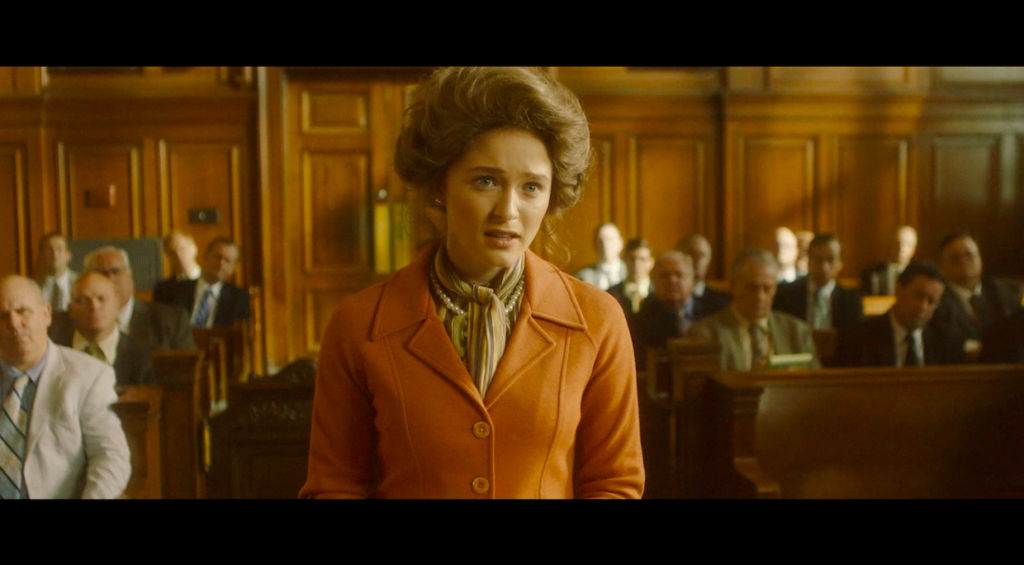
So, let’s say a woman gets pregnant. One guy in this one article said condoms break. Well, it’s not 1983, dude. You’re not in the back of your dad’s Chevelle. Condoms don’t break – from the biggest to the smallest – the technology is pretty great. Let’s say they do break. There’s something called the “morning after pill.” Somebody said “that’s expensive.” It’s 50 bucks. What’s more expensive? Fifty bucks or raising a kid for 18 years? Those, to me, are all humane ways. Early-term abortion probably would be humane. I am not a doctor. But there is a point where the embryo becomes a fetus. That’s called a late-term. So, I am not a fan of late-term abortion. That’s 21 weeks or after. I would think that six months is enough time for everybody to get together and figure out, “Hey, what are we going to do here, besides, adoption, which I also didn’t mention.”
My opinion is this: Have fun. Do what you want. Be responsible. If something happens and you don’t want it, make the decisions to take of it very early in the humane way. Well then people say, well, late-term abortions only happen. They only happen in a very small window, but I don’t know if that’s exactly accurate. Six hundred and twelve abortions, I believe, in 2017 or ‘18, we have to look at the facts – by the way – they’ve gone down every year, since Roe v. Wade, and technology [has gotten better] that’s all I’m saying. But out of the 612 abortions, 1.3 percent, I read, were after 21 weeks, that’s about 7,500 fetuses. But I’ve been told by multiple people that’s a very miniscule amount. I don’t want to get too graphic, but you have to. Picture it! All I’m saying is, let’s try to be humane. Have fun. Have sex. Be responsible. Try to prevent. Take the morning after pill. Make sure the man is responsible. But people say, I can’t say all this because I’m a dude and I don’t carry the baby…I’m just trying to use common sense.
Q: Let’s talk about your castmates. A lot of them are Hollywood conservatives, including Nick Loeb, who directed the film and perhaps is best known for being Sofia Vergara’s ex and taking her to court over their embryos, Stacey Dash, Jon Voight, Robert Davi, among others. And then there are some oddball cameo appearances by Tomi Lahren, Milo Yiannopoulos and MyPillow creator Mike Lindell.
Who did you get along with the most and the least? Can you tell me any great interactions you had with your castmates – or better yet – any weird ones?
So, I am not a fan of late-term abortion. That’s 21 weeks or after. I would think that six months is enough time for everybody to get together and figure out, “Hey, what are we going to do here, besides, adoption, which I also didn’t mention.
A: I didn’t know everyone who was going to be in the movie. I didn’t know everyone’s politics or personal stories. I did the movie because of the subject, the character. And Jon Voight was attached. I’ve worked with Jon twice before. He’s one of the greatest actors to ever grace the screen. When you act with him, you’re working with a super-talented, credible person, and it lends credit to yourself to work alongside somebody like that. Also, Billy Forsythe was in it – an amazing actor. And Stacey Dash – whatever her politics are – I don’t know enough about it. When I talk to her, she’s cool. She’s funny. She’s been in Hollywood for 30 years. Yeah, so she does some stuff on Fox News or whatever, who cares? Has anyone ever had coffee with her? She’s chill. She was in “Clueless.” She’s done a million things. She’s a cool woman and she’s a reasonable person so I guess these politics kind of cloud people, I guess. Steve Guttenberg, one of my childhood heroes – I hung with him a lot during the courtroom scene. Robert Davi, amazing actor – amazing! I guess he’s got a lot of opinions that people feels some way about. But he’s been in a lot of Hollywood blockbusters consumed by Democrats and Republicans. He’s hilarious and charming. He hangs out with a lot of big people in Hollywood. He is chill, again. I only had really good times on the movie. It was intense, but in terms of the cast, it was all great. Greer Grammer was great. Justine Wachsberger, just a lot.
Q: Co-director Cathy Allyn says her goal with this movie is to educate people. What did you learn while filming and afterwards, and do you think what was portrayed was accurate to what really happened in real life?
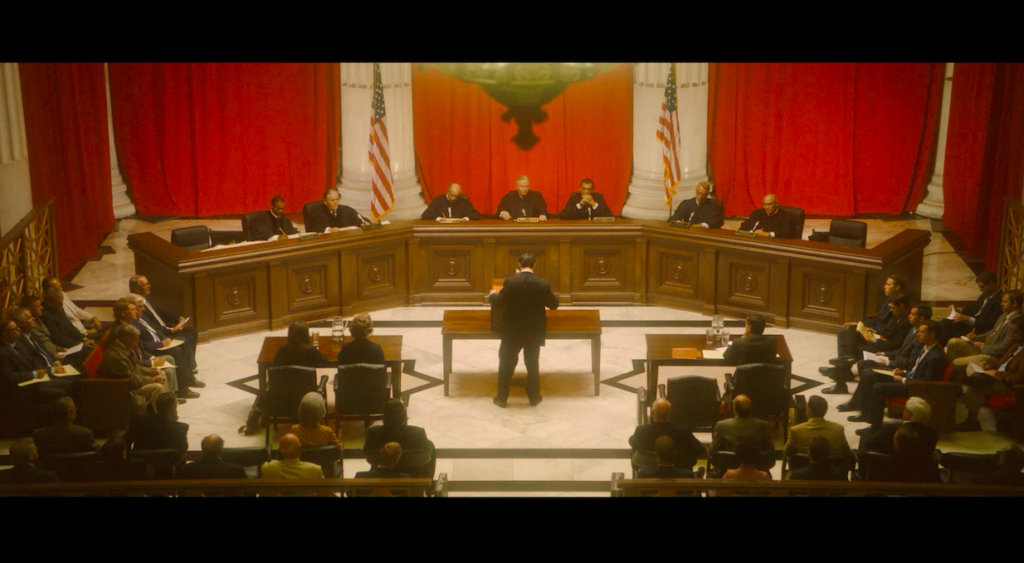
A: Follow the money. Basically, Larry…it portrays as a guy who…gets the women on board to push it through and that all could be just altruistic, that Larry could be just a guy who wants women’s rights – he could – but there might be a little bit in there that he sees a business opportunity. And that’s OK, too. He’s providing a service and people should get paid. I learned a lot. I didn’t know about all this stuff.
I think that women should have the right to do what they want with their bodies and at some point we need to decide when they’re sharing a body with another body. That’s all. And that’s why I wanted to do this movie. I wanted to show the ugliness that people don’t want to talk about. Because those images messed me up. I saw a lot of them as a child. I didn’t ask for them when I was in Catholic school, and then I saw a lot of them when I was making this movie, and they made me feel a certain way.
All I’m saying is that abortion shouldn’t be used cavalierly. I don’t think a lot of people want to use it cavalierly. It’s probably got to be the toughest decision in a woman’s life and a tough decision for a man, too. I don’t think anybody with any type of empathy wants to go through this. It doesn’t mean you can’t, but it’s just something you have to talk about…
I think a lot of people are fucking irresponsible. I’m going to be blunt about it. I think a lot of people play like…I’m just saying, be responsible! Do whatever you want. Live a hedonistic lifestyle. As long as it’s consensual, go for it. But if things happen, don’t be surprised. Don’t be like, “Oh, I was on molly, how’d I get her pregnant?”
Q: I read your interview with “The Daily Beast.” The reporter made his opinion known, so much so that he raked you over the coals for appearing in this movie. He insisted that you were “sold a false bill of goods” – that you should be shamed. What do you say to that? Is that an unfair assessment?
A: I understand that publication has a certain narrative they need to follow. [The reporter] needs to feed his readers some good crumbs and they need to get them. Everything I said in that interview, I did say…There was also a lot of stuff that was left out. It’s the annoying, super left-leaning liberal, and again – I believe I’m a center person – I’m all about common sense. I don’t subscribe to one party or the other. It’s those people that take that as Sanskrit – as truth…
I wanted to show the ugliness that people don’t want to talk about. Because those images messed me up. I saw a lot of them as a child. I didn’t ask for them when I was in Catholic school, and then I saw a lot of them when I was making this movie, and they made me feel a certain way.
Q: Let me ask the question more pointedly. Would you characterize the movie as an anti-abortion propaganda film or an eye-opening expose about what really happened during the trial of Roe V. Wade?
A: There’s definitely propaganda in the movie. Three’s definitely an agenda in the movie – a right-leaning, anti-abortion-agenda in the movie. Was it that prevalent when I was shooting it? Ehhh? I don’t think as much. I think there was stuff in there that was push back like Oliver Stone’s “JFK.” Was there stuff in there that was eye-opening? One hundred percent. But every time my eye gets opened, people say, “Well, that’s bullshit. That’s not true, Blah, blah, blah..” So it’s like, you can’t win…The problem is, people want all or nothing. That’s not what human beings are. We’re flawed. That’s the whole thing with cancel culture. People consume all this great stuff from people who they love and then they find out the person is a monster…There’s all levels to it, though. There’s a bad person. There’s a person who made some bad mistakes. Then they made some transgressions…I equate it to this: People want to go to heaven, but they don’t really want to die. You know what that really means? It means they want all the harps and the rainbows and all the wonderful things in heaven but they don’t want to go through the windshield and be ripped apart by the accident…
Q: I want to end on a good note. I know you’re Philly guy – from Upper Darby. This is no doubt a silly question, but maybe our readers will get a kick out of it after all this heavy talk. You ate Corn Flakes in the movie, so what is your favorite cereal and subsequently, your favorite Philly food?
A: One of my favorite foods, ‘cuz I grew up in Philly is pizza. I eat pepperoni pizza.
Q: You people don’t really associate pizza with Philly, right?
A: I know, but there are amazing Sicilian pizza places there. OK, I’ll take a Tony Luke’s cheesesteak and then I dip it in chili oil.
Q: Now, that’s a good answer.
A: Tony Luke’s, wit wiz and chili oil. Mmm, mmm. It’s good. It’s got a kick.
Q: Great. Well can you tell us where and how to watch “Roe V. Wade?“
A: Roe V. Wade is on iTunes, Google Play, Hulu, Rottentomatoes.com. It’s also the number one DVD on Amazon on drama. It’s doing well. There’s a conspiracy saying that it’s being suppressed, potentially, but I also believe you can rent it on Amazon Prime.
But look, all we’re trying to do is create conversation. Be aware of the people trying to shut it down.
Editor’s Note: Your contribution to AltPhilly helped make this story possible. Thank you.
